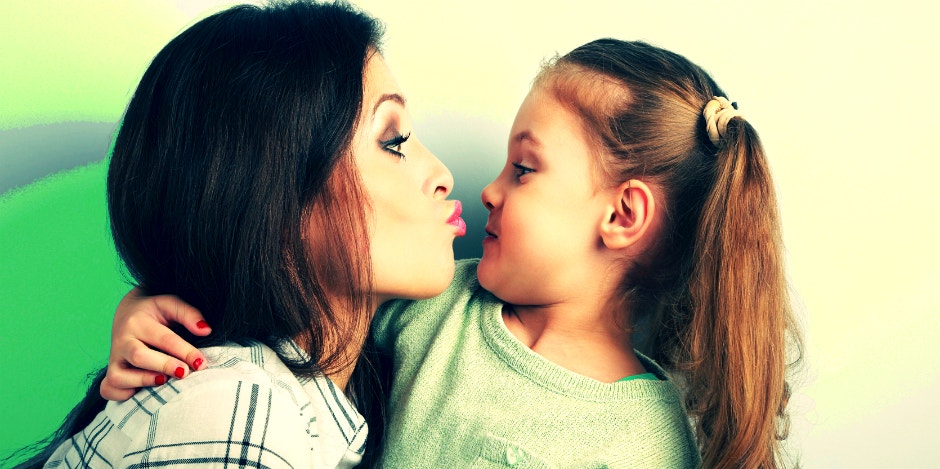The SECRET To Marriage: Love Your Partner Like You Love Your Kids
If we treated our partners like we do our children, we would have a love to believe in.
 istock
istock Yesterday, a text from a friend read, "I don't believe in love anymore." The man she shares a son and life with decided he wants out. He doesn't want the responsibility. He wants to be with someone who isn't tired and bitchy (just like I want a toddler who doesn't have tantrums).
Given the pitiful divorce statistics, love is hard to believe in sometimes.
But maybe the reality of love itself isn't the issue but our understanding of it. I have grown up with notions of "The One." When you are with the right person, he will sweep you off your feet, make you feel whole, and intuitively fulfill your every need.
I was married before I learned what real love is. It's admiration, butterflies, giggles, and play fighting on the couch. But it's also sticking out lonely and frustrating times. When love isn't effortless, it's a choice. A commitment. This is the aspect of love that's hard for people to trust in these days: The love that fights and trudges and waits.
The problem with love in our culture is that it's too conditional. We expect relationships to always benefit us. Although it's uttered often, it doesn't seem to be embraced, that relationships are also really hard.
We love people when they are enjoyable, easy, pleasant, and meeting our needs. But what about when people are too busy trekking in their own sh*t to really notice ours? Do we continue to love them or throw in the towel?
When my son was a baby, I understood him to be easy-going and syrupy sweet. Loving him was so easy... and then he turned three. He became such a little assh*le — and maybe I did, too. He yelled for no reason and all reasons. He stomped his feet, slammed doors, and those were the most acceptable of all his ill behaviors. Although there were times I wanted to tell him he was a little sh*t, my love for him never wavered. Ever.
We should love our partners like we do our children.
When our children act like sh*theads and parenting doesn't feel all that enjoyable, we call it a "phase." We know we will get through it.
When they tell us they don't feel like cuddling because they rather watch Paw Patrol, we laugh at their honesty and don't get upset.
We expect kindness and respect, but we don't expect them to fill our emotional needs. We see their flaws as their humanness, and don't expect them to be perfect.
We are clear about what we want without expecting them to read our minds. We don't give them the cold shoulder because they didn't clean up their toys. We show them how and encourage them to do it.
If someone spoke negatively of our children, we would defend them. We would defend them because we understand them. We know when they are hungry, tired or frustrated, and don't expect them to be at their bests in these moments. We do, however, nourish them, give them rest, and let them know we are here to help.
But let's be honest, no one would talk badly about our children to us. They know better.
Even when we feel a little bitchy and prefer to be left alone, we are open to their love.
We point out their strengths and downplay their weaknesses. I never tell my four-year-old that he keeps jamming the wrong puzzle pieces together. Instead, I tell him I love his persistence.
We make time to connect with our children and do the things they like to do, even if it's looking for rolly-pollies in the dirt. We put our obligations down momentarily, and show them how important they are.
We think of the big picture. We know the problems of today will not be the problems of tomorrow. We picture our children 20 years from now, and we imagine ourselves as best friends. We know our actions today influence the future of our relationship.
We love our children in raw, accepting, and pure ways. We step up to the plate, and do our best even when it's hard.
Every night, as I tuck my four-year-old into bed, I tell him, "You are my favorite superhero." Maybe I should share this phrase with my husband, too. If we treated our partners like we do our children, we would have a love to believe in.

